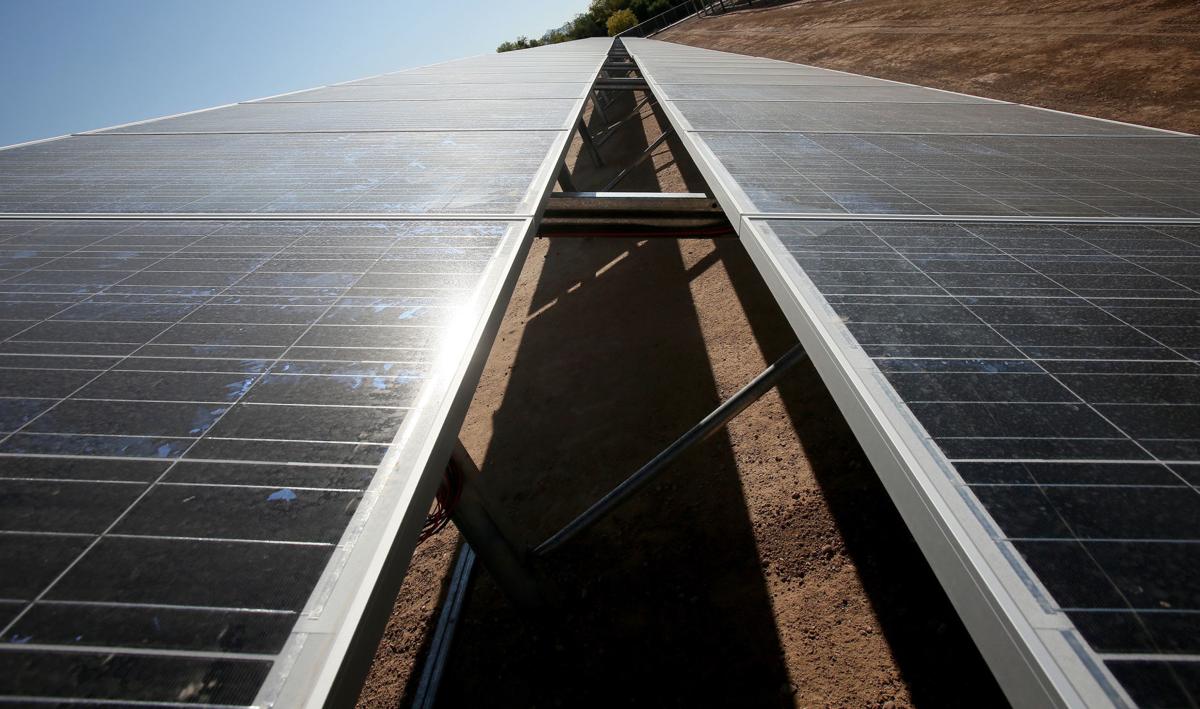The state’s largest electric company has now poured more than $30 million into its bid to persuade Arizonans not to force it and other utilities to use more renewable resources.
And the spending by Arizona Public Service under the banner of Arizonans for Affordable Energy doesn’t count another more than $734,000 pumped into the campaign against Proposition 127 by rural electric cooperatives, plus about $165,000 from Unisource Energy, the parent company of Tucson Electric Power.
That’s not to say the dollars are all on one side of the issue.
Citizens for a Healthy Arizona, financed largely by a political action committee formed by California billionaire Tom Steyer, already had spent close to $24 million by Oct. 20, the last day of the reporting period for the newly filed disclosure forms.
The initiative would require utilities to obtain half of their power from renewable sources by 2030, a list that includes solar, geothermal and wind. By contrast, the current rules adopted by the Arizona Corporation Commission mandate just a 15 percent renewable standard by 2025.
Only one other ballot measure has attracted anywhere near that much cash.
Citizens for Fair Tax Policy, funded by state and national Realtors, has plowed about $23.6 million into its campaign to amend the Arizona Constitution to forever bar lawmakers from expanding the state sales tax to include services. That would include everything from medical and veterinary care to tax preparation, accounting and real estate services.
The newly formed opposition group called No on 126 has accumulated donations of less than $123,000. And the lion’s share of that comes from Stand for Children, a nonprofit group that advocates for issues like early childhood literacy.
Much farther back in the cash department is Save our Schools Arizona, which is trying to persuade voters to overturn 2017 legislation that allows any of the 1.1 million students in Arizona public schools to seek vouchers of state tax dollars to attend private or parochial schools. That organization’s spending is approaching $600,000.
Most of that group’s money urging a “no” vote on Proposition 305 comes from a separate nonprofit also operating under the same name, which is allowed to accept donations without disclosing its sources.
On the other side of the battle is the Yes for Ed committee, with just $53,000 in donations.
Its campaign finance reports show close to half of that coming from Every Child Can Learn, a Phoenix corporation run by Phoenix businesswoman Lynn Londen. She said the organization, formed years ago to advocate for things like education reform and school choice, gets most of its money from her family-run businesses.
Arizonans Against Dark Money has collected only about $10,500 in its support of Proposition 306.
That measure would prohibit publicly funded candidates from spending any of their cash with political parties. It also would subject the rules of the bipartisan Citizens Clean Elections Commission to the oversight of the Governor’s Regulatory Review Council whose members are all appointees of Gov. Doug Ducey.
The campaign against Prop 306 is better funded, with the latest reports showing The Future We Want with nearly $322,000 in expenses. Most of that comes from Citizens for Accountable Government. And a check of that organization’s finance records finds its money generated from various labor unions.
The Future We Want also has put another nearly $7,000 into a campaign against Proposition 125. That measure would make constitutional changes in the benefits for those in state retirement plans for corrections officers and elected officials, a move proponents say is necessary to keep both plans solvent.
There were no reports of spending in favor of the measure.





